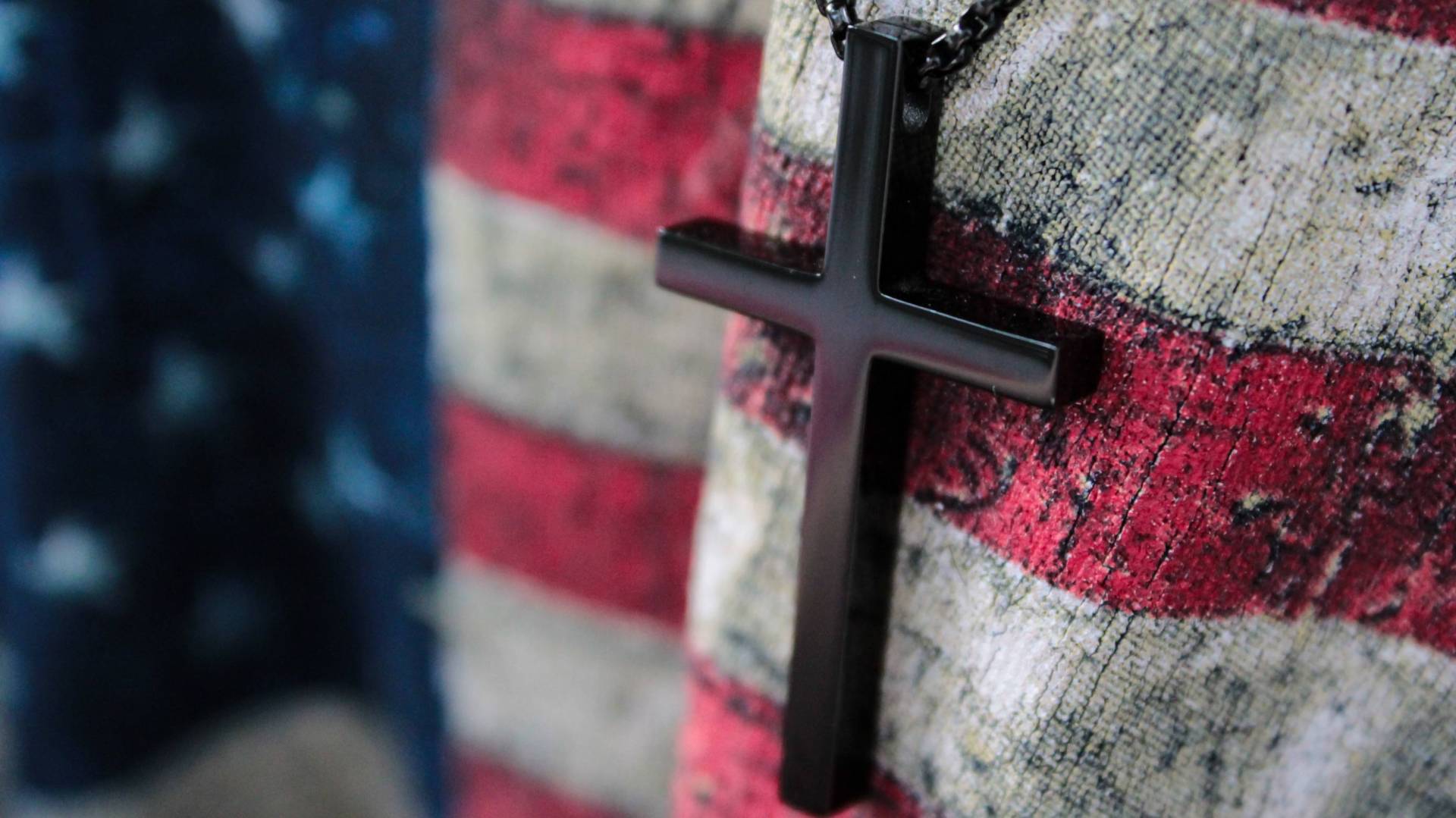In a country where 80 percent of adults believe religion’s influence is in decline, white evangelicals stand out as the group most likely to want to see their faith reflected in the US government.
According to a new survey from the Pew Research Center, most white evangelicals want a president who reflects their religious beliefs, believe the Bible should have some influence on US laws, and see the retreat of religion as a bad thing.
Yet they oppose adopting Christianity as an official religion and very few (8%) have a “favorable” view of Christian nationalism.
Overall, nearly half of adults see the decline of religious influence in the country as a bad thing. White evangelicals are the most likely to see the trend negatively, at 76 percent. The majority of other Christians across traditions agree.
Most Americans want to see someone in the White House who stands up for their religious beliefs. Though few see either candidate in the 2024 race as particularly religious, more than two-thirds of white evangelicals believe Donald Trump comes to their defense.
Despite the increasing buzz around Christian nationalism from candidates on the stump or on social media, Pew found that most Americans (54%)—and most Christians—have not heard of the term at all.
“Even those who think the United States should be a Christian nation and the Bible should have a great deal of influence on the law, most of them are reluctant to say that they have a favorable view of Christian nationalism. So there seems to be some negative stigma with the term,” Michael Rotolo, lead author of the report, said.
While a plurality of Americans (44%) believe the government should promote Christian moral values, only 13 percent of respondents say the government should declare Christianity the official religion.
More than half of Christians across traditions agree about promoting Christian values, and around a quarter of white evangelicals, Black Protestants, and Hispanic Protestants support making the faith official.
It was the first time Pew asked whether the federal government should officially declare Christianity as the nation’s religion. Rotolo said Pew researchers found in a 2022 survey that when people were asked what came to mind when they think of a Christian nation, responses were all over the map.
“It means things like the general guidance of Christianity and society. It means that people have faith in God broadly. People didn’t even specify the Christian God. People said things like, a Christian nation means that people believe in something,” Rotolo said. “So that’s what actually inspired us to ask this new question for the first time.”
In the latest report, nearly half of Americans (49%) say Scripture should influence laws in the United States. White evangelicals (86%), Hispanic Protestants (78%), and Black Protestants (74%) are most likely to agree.
They’ve found in past surveys, Rotolo said, that people have a range of views on what that means in practice. Some people, he said, might be thinking that “the general moral teachings of the Bible would be parallel to what we see in laws.”
Wanting the Bible to have more influence was much stronger on the Right; 42 percent of Republicans and independents that lean Republican hold that, when the Bible and the will of the people are in conflict, “the Bible should have more influence.”
A majority of adults say they believe the Bible already does have “some” influence on the country’s laws, and atheists and agnostics have the highest percentage (over 80% each) responding that that was the case. Black Protestants are the group most likely to say that the Bible has “not much” influence on U.S. laws (59%) with white evangelicals next at 52%.
Slightly more Americans “say their religion makes them part of a minority group” and see their beliefs in conflict with mainstream culture than four years ago.
Jewish and Muslim Americans were the most likely to say their faith put them in a minority category compared to other faith traditions. White evangelicals were the most likely to see cultural conflict, at 71 percent, though majorities of Jews and atheists said the same thing.
Ahead of another polarizing presidential race, Americans are divided on how exactly the relationship of religion and public life should look. Increasing numbers of Americans want to avoid discussing religion entirely when they interact with people who disagree with them, up from 33 percent in 2019 to 41 percent this year.
A majority—53 percent—say it’s best to seek to “understand the other person’s perspective and agree to disagree,” but that number has dipped from 62 percent in 2019.
Only 5 percent say they believe proselytizing to be the best approach to “try and persuade the other person to change their mind.” White evangelicals, at 14 percent, are the most likely to say the best approach is persuasion.
This article has been corrected to state that the majority of both white evangelicals and Black Protestants believe the Bible has "not much" influence on US laws.












